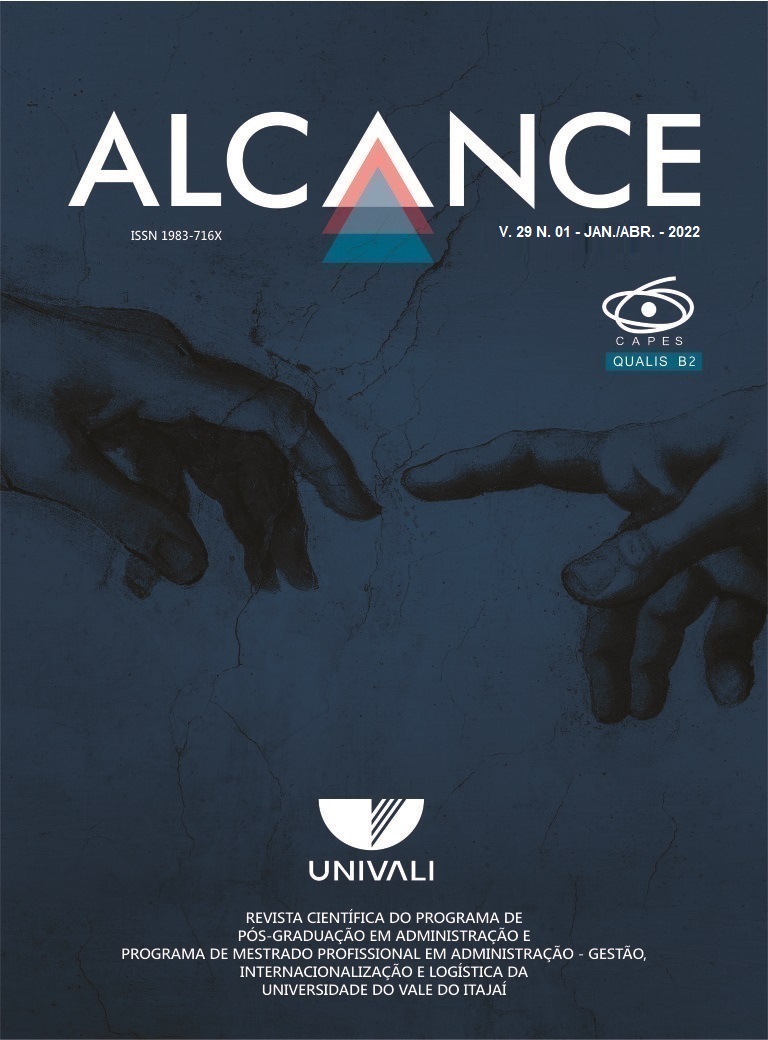





Bartle, R. R. (2003). Designing Virtual Worlds. Berkeley, CA: New Riders.
Bauman, Z. (2004). Amor Líquido: sobre a fragilidade dos laços humanos. Rio de Janeiro: Jorge Zahar Ed.
Bauman, Z. (2008). Vida para o consumo: a transformação das pessoas em mercadorias. Rio de Janeiro: Jorge Zahae Ed.
Belk, R. W. (2013). Extended Self in a Digital World. Journal of Consumer Research, 40(3), 477–500. https://doi.org/10.1086/671052
Bonavitta, P. (2015). El amor en los tiempos de Tinder. Cultura y Representaciones Sociales, 10(19), 197–210. https://doi.org/10.1016/j.soard.2012.10.007
Corrar, L. J., Paulo, E., & Dias Filho, J. M. D. (2007). Análise multivariada: para os cursos de administração, ciências contábeis e economia. São Paulo: Atlas.
Duguay, S. (2017). Dressing up Tinderella: interrogating authenticity claims on the mobile dating app Tinder. Information Communication and Society, 20(3), 351–367. https://doi.org/10.1080/1369118X.2016.1168471
Giddens, A. (1991). Modernity and Self-Identity: self and society in the late modern age. Cambrige: Polity Press.
Glavam, A. K., Casagrande, J., Silva, A., Morais, A. De, & Cristine, M. (2015). Sensory Marketing in the Brand Communications: A Theoretical Essay. Brazilian Journal of Management & Innovation, 2, 1–21.
Green, S. M., Turner, D., & Logan, R. G. (2018). Exploring the Effect of Sharing Common Facebook Friends on the Sexual Risk Behaviors of Tinder Users. Cyberpsychology, Behavior, and Social Networking, 21(7), 457–462. https://doi.org/10.1089/cyber.2017.0581
Hair Jr, J. F., Anderson, R. E., Tatham, R. L., & Black, W. C. (2005). Análise Multivariada de Dados (5th ed.). Porto Alegre: Bookman.
Holbrook, M. B., & Hirschman, E. C. (1982). The experiential aspects os consumption: consumer fantasies, feelings, and fum. Journal of Consumer Research, 9(September), 1–27. https://doi.org/10.1086/208906
Larsen, G. & Patterson, M. (2018). Consumer Identity Projects. In: O. Kravets, P. Maclaran, S. Miles e A. Venkatesh (eds.) Sage Handbook of Consumer Culture, Sage, 194-213.
LeFebvre, L. E. (2018). Swiping me off my feet: Explicating relationship initiation on Tinder. Journal of Social and Personal Relationships, 35(9), 1205–1229. https://doi.org/10.1177/0265407517706419
Livingstone, S. (2004). The Challenge of Changing Audiences Or, What is the Audience Researcher to do in the Age of the Internet? European Journal of Communication, 19(1), 75–86.
Malhotra, N. K., & Birks, D. F. (2007). Marketing Research: an applied approach (3rd ed.). England: Prentice Hall. https://doi.org/10.1016/j.disc.2014.07.009
Mattar, F. N. (1996). Pesquisa de marketing: edição compacta. São Paulo: Atlas.
Öberg, B. (2017). O Tinder que se cuide: novo aplicativo de paquera cresce rápido em SP. Retrieved from https://vejasp.abril.com.br/consumo/aplicativos-namoro-happn-tinder/
Oliveira, P. R. M. de, Magalhães, A. M. R., & Andrade, A. B. P. de. (2016). Consumo de “hiperfelicidade” sem sites de namoro. In Congresso Internacional Comunicação e consumo. São Paulo: PPGCOM ESPM.
Pereira, B., Tannus, A. M. N., Carlos, Teixeira, Vieira, J., Sepúlveda, R., … Logan, R. G. (2018). Public interactions, private censorship: the case of Facebook. Urbe. Revista Brasileira de Gestão Urbana, 18(3), 1637–1651. https://doi.org/10.1590/S0104-59702015000500006
Precht, R. D. (2012). Amor: um sentimento desordenado. São Paulo: Leya Casa da Palavra.
Ranzini, G., & Lutz, C. (2017). Love at first swipe? Explaining Tinder self-presentation and motives. Mobile Media and Communication (Vol. 5). https://doi.org/10.1177/2050157916664559
Reed, D. J., & Johnson, M. R. (2014). Exploring the Effect of Sharing Common Facebook Friends on the Sexual Risk Behaviors of Tinder Users. Revista Brasileira de Gestão Urbana, 6(1), 57–72. https://doi.org/10.1590/S0104-59702015000500006
Schrock, A. R. (2015). Communicative affordances of mobile media: Portability, availability, locatability, and multimediality. International Journal of Communication, 9(1), 1229–1246. https://doi.org/10.1177/0094306111425016k
Silveira, S. A. da. (2015). Interações Públicas, censura privada: o caso do Facebook. História, Ciências, Saúde, 22(supl. dez.), 1637–1651. https://doi.org/10.1590/S0104-59702015000500006
Tannus, A. M. N. (2018). Amor em tempos de Banda Larga Uma análise Sociológica do aplicativo Tinder. Universidade Federal de São Paulo.
Vieira, J., & Sepúlveda, R. (2017). A autoapresentação dos portugueses na plataforma de online dating Tinder. Observatorio, 11(3), 153–185.
Wajcman, Judy (2002). Addressing Technological Change: The Challenge to Social Theory. Current Sociology, 50(3), 347–363.




Copyright (c) 2022 Revista Alcance

Este trabalho está licenciado sob uma licença Creative Commons Attribution 4.0 International License.






A Revista Alcance é uma revista brasileira de livre acesso, com publicação quadrimestral, vinculada ao Programa de Pós-Graduação em Administração e Programa de Mestrado Profissional em Administração - Gestão, Internacionalização e Logística da Universidade do Vale do Itajaí – Univali. Procuramos publicar artigos de trabalhos teóricos-empíricos e tecnológicos nas áreas da Administração. Diferentes perspectivas teóricas e metodológicas são bem-vindas, desde que sejam consistentes e relevantes para o desenvolvimento da área.
AS SUBMISSÕES ESTÃO SUSPENSAS ATÉ 02/02/2026.

